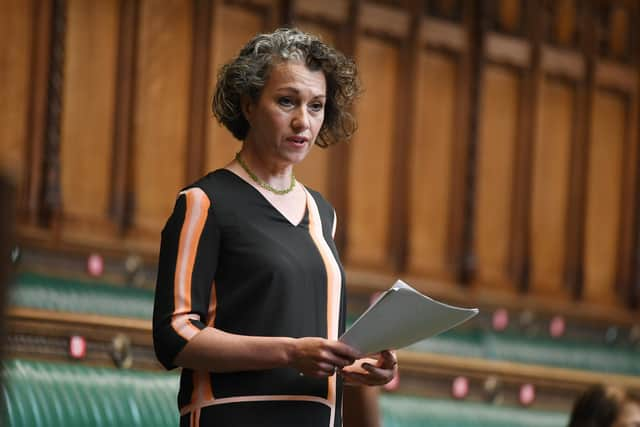Online Safety Bill must do more to protect children from abusers: Sarah Champion
My frustration is that when the Bill first started, we were very much seen as a world leader in this field, but now the abuse has become so prolific, other countries have stepped in and we are sadly lagging behind.
The NSPCC has warned that over 100 online grooming and child abuse image crimes are likely to be recorded every day while we wait for this crucial legislation to pass. Of course, that is only the cases that are recorded. The number is going to be far greater than that.
Advertisement
Hide AdAdvertisement
Hide AdThere are vital protections in the Bill, but there is a real threat that the use of virtual private networks – VPNs – could undermine the effectiveness of these measures.


VPNs allow internet users to hide their private information, such as their location and data.
They are commonly used, and often advertised, as a way for people to protect their data or watch online content. For example, on TV services such as Netflix, people might be able to access something only in the US, so they could use a VPN to circumnavigate that to enable them to watch it in this country.
During the Bill’s evidence sessions, Professor Clare McGlynn said that 75 per cent of children aged 16 and 17 used, or knew how to use, a VPN, which means that they can avoid age verification controls. So if companies use age assurance tools, there is no guarantee that they will provide the protections that are needed. I am also concerned that the use of VPNs could act as a barrier to removing indecent or illegal material from the internet.
Advertisement
Hide AdAdvertisement
Hide AdThe Internet Watch Foundation uses a blocking list to remove this content from internet service providers, but users with a VPN are usually not protected through the provisions they use. It also concerns me that a VPN could be used in court to circumnavigate this legislation, which is very much based in the UK.
My new clause 54 would require the Secretary of State to publish, within six months of the Bill’s passage, a report on the effect of VPN use on Ofcom’s ability to enforce. If VPNs cause significant issues, the Government must identify those issues and find solutions, rather than avoiding difficult problems.
New clause 28 would establish a user advocacy body to represent the interests of children in regulatory decisions. Children are not a homogenous group, and an advocacy body could reflect their diverse opinions and experiences. The NSPCC has argued that it would be an important way to counterbalance the attempts of big tech companies to reduce their obligations, which are placing their interests over children’s needs.
I would like to see more third sector organisations consulted on the code of practice. The Internet Watch Foundation already has the necessary expertise to drastically reduce the amount of child sexual abuse material on the internet. The Government must work with the IWF and build on its knowledge of web page blocking and image hashing.
Advertisement
Hide AdAdvertisement
Hide AdGirls in particular face increased risk on social media, with the NSPCC reporting that nearly a quarter of girls who have taken a nude photo have had their image sent to someone else online without their permission. New clauses 45 to 50 would provide important protections to women and girls from intimate image abuse, by making the non-consensual sharing of such photos illegal.
In the face of the huge increase in online abuse, victims’ services must have the necessary means to provide specialist support. Refuge’s tech abuse team, for example, is highly effective at improving outcomes for thousands of survivors, but the demand for its services is rapidly increasing.
The landmark report by the Independent Inquiry into Child Sexual Abuse recently highlighted that, between 2017-18 and 2020-21, there was an approximately 53 per cent rise in recorded grooming offences. With this crime increasingly taking place online, the report emphasised that internet companies will need more moderators to aid technology in identifying this complex type of abuse.
We must also ensure that adults, particularly parents, are educated about the threats online. Internet Matters found that parents underestimate the extent to which their children are having negative experiences online, and that the majority of parents believe their 14 to 16-year-olds know more about technology than they do.
Advertisement
Hide AdAdvertisement
Hide AdThe example that most sticks in my mind was provided by the then police chief in charge of child protection, who said, “What is happening on a Sunday night is that the family are sitting in the living room, all watching telly together. The teenager is online, and is being abused online.” In his words, “You wouldn’t let a young child go and open the door without knowing who is there, but that is what we do every day by giving them their iPad.”
If parents, guardians, teachers and other professionals are not aware of the risks and safeguards, how are they able to protect children online?
Sarah Champion is Labour MP for Rotherham. This is an edited version of a recent speech in Parliament.